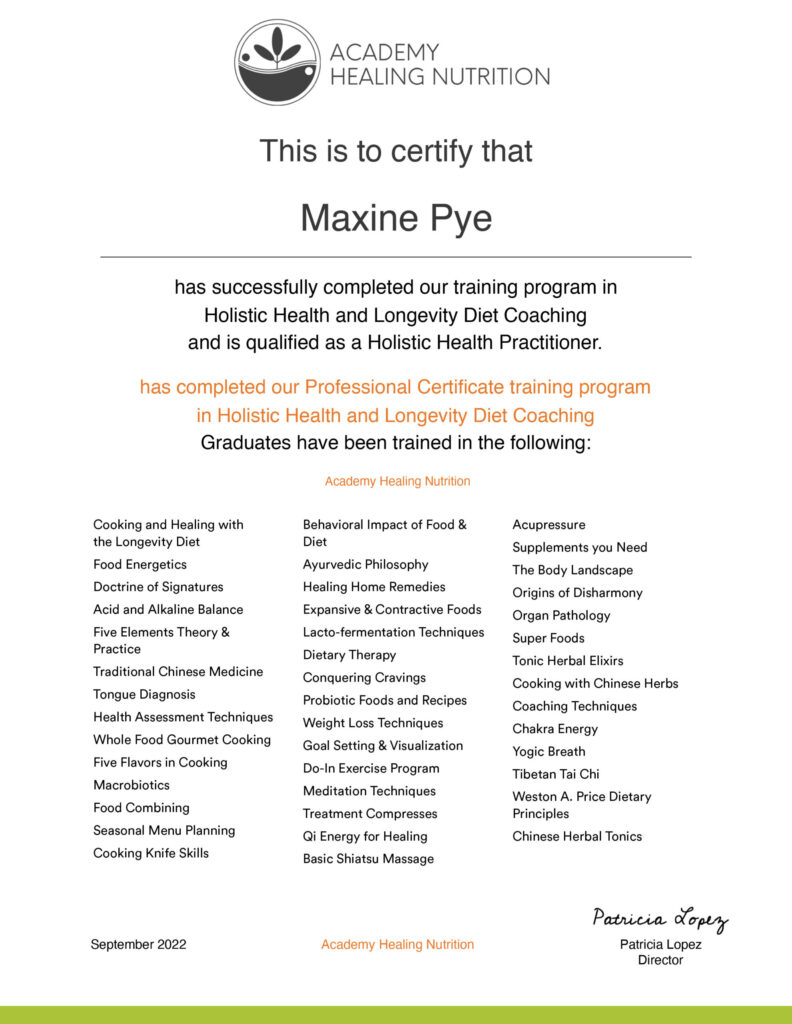Holistic Medicine Certification: Your Path to a Rewarding and Meaningful Career

The pursuit of holistic health is gaining significant momentum, with individuals increasingly seeking alternative and complementary therapies to address their well-being. This growing demand has created a thriving market for practitioners of holistic medicine, leading to an increased interest in holistic medicine certification programs. But what exactly does holistic medicine certification entail, and what are the benefits of pursuing such a qualification?
Understanding Holistic Medicine
Holistic medicine views the individual as a whole, encompassing physical, mental, emotional, and spiritual aspects. Unlike conventional medicine, which often focuses on treating specific symptoms, holistic medicine aims to address the root causes of illness and promote overall well-being. It integrates various therapeutic approaches, including:
- Acupuncture: An ancient Chinese technique involving the insertion of thin needles into specific points on the body to stimulate energy flow.
- Ayurveda: A traditional Indian system of medicine emphasizing balance and harmony within the body.
- Naturopathy: A system of medicine based on the body's inherent healing ability, employing natural remedies and lifestyle changes.
- Herbalism: The use of plants and their extracts for therapeutic purposes.
- Massage therapy: Manipulating soft tissues to relieve pain, improve circulation, and promote relaxation.
- Yoga and meditation: Practices that promote physical and mental well-being through various postures, breathing techniques, and mindfulness exercises.
The Benefits of Holistic Medicine Certification
Obtaining a holistic medicine certification offers numerous benefits for aspiring practitioners. These include:
- Enhanced Credibility and Professional Recognition: Certification demonstrates your commitment to professionalism and expertise in holistic medicine, enhancing your credibility among clients and peers. It assures clients of your competency and adherence to established standards.
- Improved Career Opportunities: The growing demand for holistic practitioners creates ample career opportunities in various settings, including private practices, wellness centers, spas, hospitals, and corporate wellness programs. Certification significantly improves your job prospects and earning potential.
- Access to Continuing Education and Networking Opportunities: Many certification programs offer continuing education opportunities, keeping you updated on the latest advancements and trends in holistic medicine. They often provide networking opportunities, allowing you to connect with other professionals in the field and expand your professional network.
- Greater Client Confidence: Clients are more likely to trust and engage with certified practitioners, leading to increased client base and referrals. Certification demonstrates a commitment to quality care and ethical practices.
- Personal and Professional Growth: Pursuing a holistic medicine certification can be incredibly rewarding on a personal level. It provides an opportunity for self-discovery and growth, while equipping you with the skills and knowledge to positively impact the lives of others.
Choosing the Right Holistic Medicine Certification Program
With a multitude of holistic medicine certification programs available, choosing the right one can be challenging. Consider the following factors when making your decision:
- Accreditation and Recognition: Opt for programs accredited by reputable organizations, ensuring the quality and legitimacy of your certification.
- Curriculum and Course Content: Examine the program's curriculum carefully to ensure it aligns with your interests and career goals. Look for programs that offer comprehensive coverage of various holistic modalities.
- Faculty Expertise: Investigate the credentials and experience of the instructors and faculty involved in the program.
- Program Structure and Flexibility: Choose a program that fits your learning style and schedule, considering whether online, in-person, or hybrid options are available.
- Cost and Financial Aid: Assess the program's tuition fees and investigate potential financial aid or scholarship opportunities.
Career Paths in Holistic Medicine
A holistic medicine certification can open doors to a variety of rewarding career paths, such as:
- Holistic Health Practitioner: Providing personalized holistic health plans and treatments to clients.
- Wellness Coach: Guiding clients towards achieving their health and wellness goals through lifestyle modifications and behavior change strategies.
- Yoga Instructor: Teaching yoga classes and guiding students in various yoga styles and techniques.
- Massage Therapist: Providing massage therapy treatments to relieve pain, improve circulation, and promote relaxation.
- Acupuncturist: Practicing acupuncture to address pain, illness, and other health concerns.
Conclusion
Obtaining a holistic medicine certification is a significant step towards building a successful and fulfilling career in this rapidly expanding field. By carefully considering your interests, career goals, and the factors mentioned above, you can choose the right program to embark on a transformative journey that will benefit both you and your future clients. The rewards are immense – not only financially, but also in terms of the positive impact you can have on the lives of others, promoting overall well-being and contributing to a healthier world.

Note: This article is for informational purposes only and does not constitute medical advice. Always consult with a qualified healthcare professional before making any decisions related to your health or treatment.
Disclaimer: This article has been compiled from various sources.